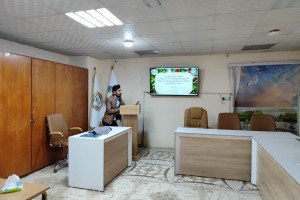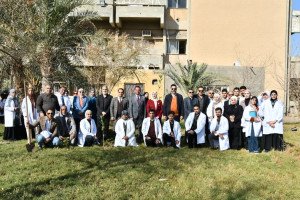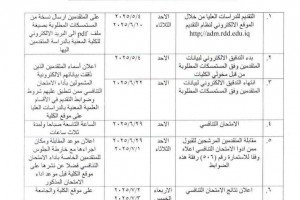
The Department of Food Sciences at the College of Agriculture at the University of Basra organized a seminar on the preparation of protein hydrolysates from fish waste, testing their antioxidant and antimicrobial efficacy, and their application in food systems.
The seminar, delivered by graduate student Alaa Jabbar Latif Jaber and supervised by Assistant Professor Dr. Sahar George Subaih and Assistant Professor Dr. Lina Samir Mohammed, aimed to prepare protein hydrolysates from the internal organs of samtie and nuwaibi fish using the enzymes Papain and Flavorzyme, test their antioxidant and antimicrobial efficacy, and apply them to food systems.
The workshop included the preparation of protein hydrolysates from the viscera of samtie and noeby fish using the enzymes Papain and Flavorzyme. The chemical content of the viscera was estimated, as was the thermogravimetric decomposition of the protein hydrolysates. The amino acid profile of the protein hydrolysates was also studied, and the ability of the protein hydrolysates to capture free radicals, bind ferrous ions, and reducer power were assessed. The functional properties of the protein hydrolysates were also assessed, including water absorption, fat absorption, emulsification, and solubility. The antibacterial inhibitory activity of the protein hydrolysates against Streptococcus aureus and Escherichia coli was also assessed. The protein hydrolysates were used with beef patties, and the peroxide values of the beef patties and microbial changes in the meat were monitored, including the count of Escherichia coli and Streptococcus aureus, the total bacterial count, and the refractory bacteria. The study found that the use of protein hydrolysates improved the quality of beef patties and helped extend their shelf life in the refrigerator.
Department of Media and Government Communication / College of Agriculture







